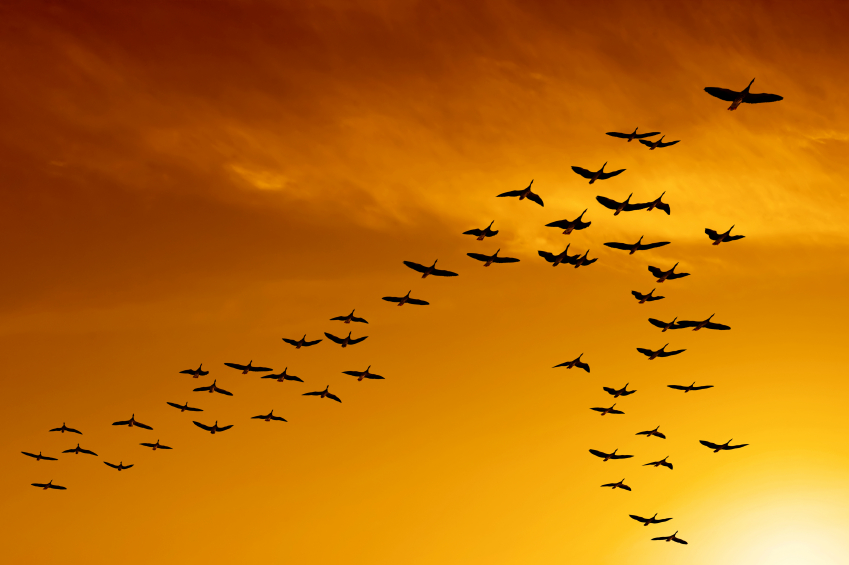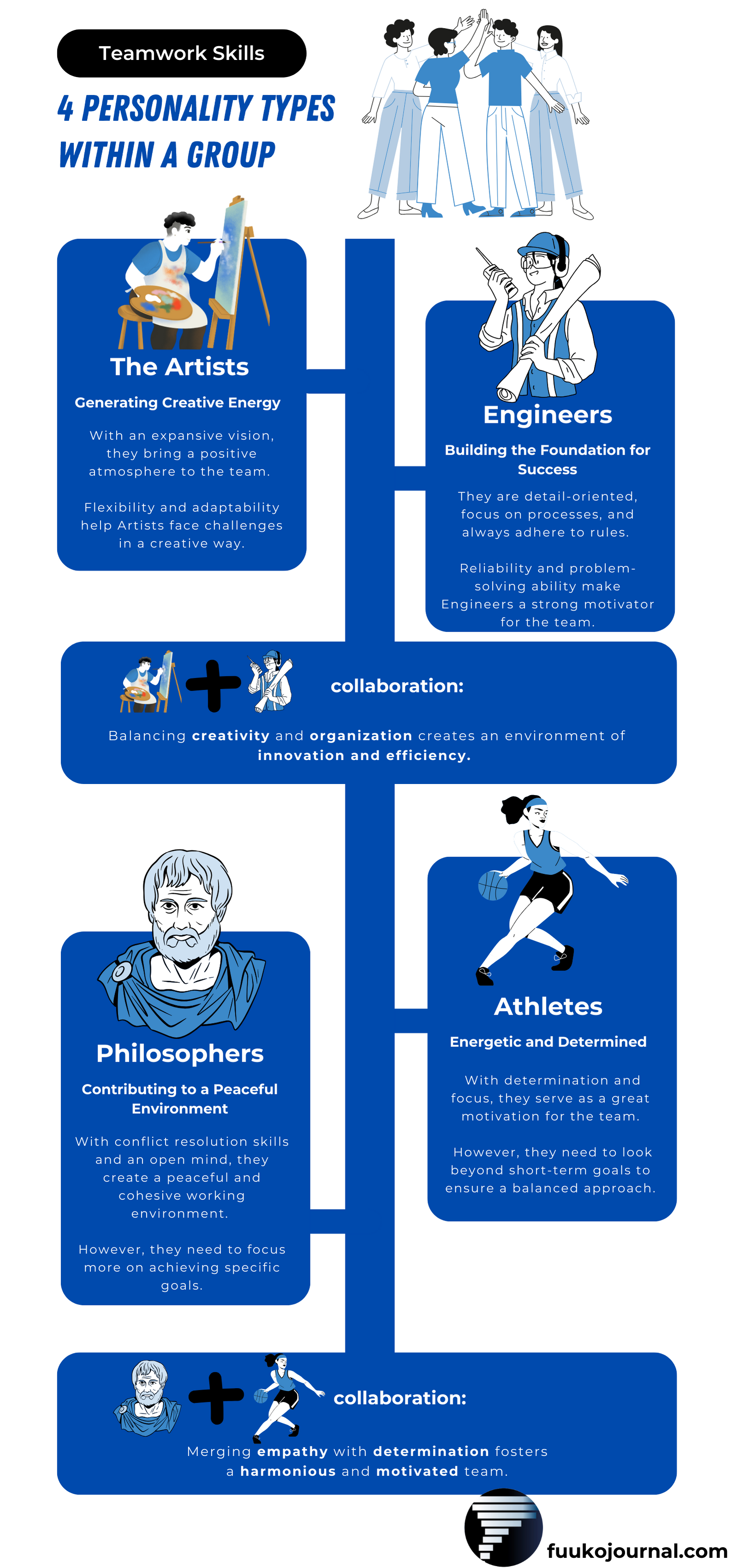-
×
 Habit Tracker Google Sheets - Cat Grow
1 × 4 $
Habit Tracker Google Sheets - Cat Grow
1 × 4 $ -
×
 Task Tracker Google Sheets _Simple
1 × 2 $
Task Tracker Google Sheets _Simple
1 × 2 $
Explore & Expand
Teamwork Skills: Harmonizing 4 Personality Types Within a Group Effectively
As a Data Analyst within a team, I understand that success doesn’t solely come from individual effort but relies heavily on teamwork. Let me introduce you to the story of migrating geese, where profound lessons about team spirit, sharing, and unity can be drawn.
Like migrating geese flying in V formation, team members can support each other to achieve goals quickly and safely. Geese take turns leading while others follow, showing how alternating leadership builds flexibility and unity. When a goose struggles, others protect it, demonstrating the strength of solidarity. Geese honk to motivate those in front, reflecting the importance of encouragement and positive spirit within a team.

If we embrace the spirit of geese, we gain strength from unity when facing challenges. Disagreements and difficulties present opportunities to show solidarity. As a team member, you have a unique role in collectively working towards shared goals. Our strength comes not just from individuals, but from the ability to stand together. By aiming for common goals with flexibility, encouragement and solidarity, a team can achieve more than its individual members alone.
Collaborating in teams means working with people of diverse personalities and strengths. To optimize team effectiveness, it’s important to recognize the main personality types and learn how to harmonize them. Four common personality types found in groups are artists, engineers, athletes and philosophers.
By understanding the unique value of each type and promoting harmony among them, teams can better leverage their diversity for collective success. Effectively harmonizing the personality types of artists, engineers, athletes and philosophers within a group leads to enhanced teamwork.

Artists: Generating Creative Energy
Artists are a source of motivation for creativity and imagination. With an expansive vision, they bring a positive atmosphere to the team. Flexibility and adaptability help Artists face challenges in a creative way.
Strengths:
- Creative and rich in imagination.
- Flexible and willing to take risks.
- Enthusiastic and optimistic.
Weaknesses:
- Disregards rules and has a tendency to break systems.
- Lacks discipline and easily distracted.
- Overly adventurous and impulsive.
Overcoming Challenges:
- Pay attention to details and organization.
- Learn to work systematically.
- Develop communication skills to express ideas clearly.
Engineers: Building the Foundation for Success
Engineers, with logic and organization, help build the foundation for the team. They are detail-oriented, focus on processes, and always adhere to rules. Reliability and problem-solving ability make Engineers a strong motivator for the team.
Strengths:
- Logical, rational, and objective.
- Organized, methodical, and disciplined.
- Reliable and effective.
Weaknesses:
- Inflexible and resistant to change.
- Lacks creativity and averse to change.
- Over-focuses on details and processes.
Overcoming Challenges:
- Avoid overly cautious decision-making.
- Discover flexibility and creativity.
- Enhance communication and social interaction skills.
Athletes: Energetic and Determined
Athletes bring positive energy and motivational spirit to the team. With determination and focus, they serve as a great motivation for the team. However, they need to look beyond short-term goals to ensure a balanced approach.
Strengths:
- Extremely focused and ambitious.
- Determined, cooperative, and diligent.
- Quick to take action.
Weaknesses:
- Egocentric and self-centered.
- Short-sighted, lacks long-term vision.
- Uncooperative and indifferent to long-term consequences.
Overcoming Challenges:
- Develop a long-term strategic vision.
- Be flexible and adapt to change.
- Cultivate teamwork and concern for others.
Philosophers: Contributing to a Peaceful Environment
Philosophers bring sensitivity and dedication to the team. With conflict resolution skills and an open mind, they create a peaceful and cohesive working environment. However, they need to focus more on achieving specific goals.
Strengths:
- Sensitive, caring, and supportive.
- Open-minded to diverse opinions.
- Conflict resolution and trust-building.
Weaknesses:
- Slow to take action and indecisive.
- Easily influenced by emotions.
- Limited direction and goal orientation.
Overcoming Challenges:
- Complete tasks at a pace and decisiveness.
- Use logic and facts more often.
- Develop focus to achieve specific goals.
Combining Team Roles: The Power of Diversity
- The Artist and Engineer Collaboration: Balancing creativity and organization creates an environment of innovation and efficiency.
- The Philosopher and Athlete Collaboration: Merging empathy with determination fosters a harmonious and motivated team.
Conclusion: Immersing in the Organizational Strength
Understanding the traits and approaches of each team member is key to an effective team environment. By leveraging the unique strengths of each individual and creating a balance between working styles, a team can achieve diversity and innovation while maintaining stability and high performance. Diversity is not only the key to team success but also the foundation for sustainable development.

